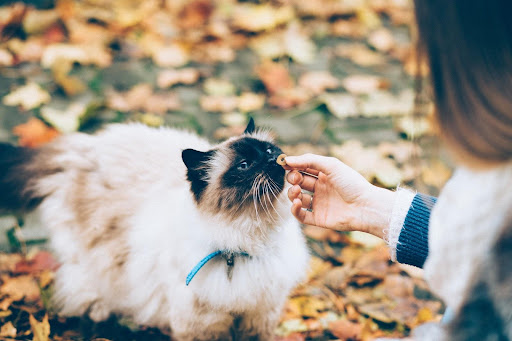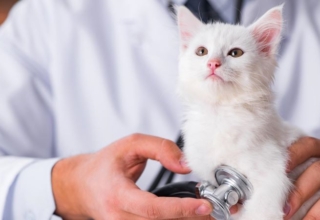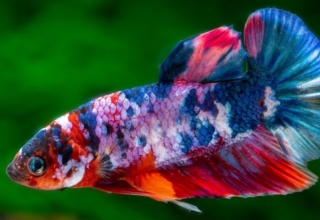
Animal nutrition is equally essential as plant nutrition. The process of photosynthesis allows plants to make their sustenance, but mammals cannot. As a result, they must rely on plants or other animals for nourishment.
Animals obtain sustenance directly from plants (herbivores) or indirectly from animals that have devoured plants (carnivores). Omnivores are creatures that eat both vegetation and animals. All creatures require nourishment to survive and flourish.
Nutrients are the many food ingredients, such as carbs, lipids, proteins, minerals, and vitamins, that the body needs to function correctly. Because digestion breaks these complex components down into simpler ones, they can be used indirectly. Here are a few ways to achieve animal nutrition.
- It Improves Animal Temperament
Everyone understands how hunger feels and has nothing tempting to eat. Lack of access to the nourishment your body requires leads to cranky attitudes and unhappiness. You could snap at others for no apparent reason. Animals exhibit the same behavior. Animals’ temperaments deteriorate when they are not fed a balanced diet of protein, carbohydrates, and good fats.
Chickens will squabble, and cows will refuse to remain still for milking. It makes it tough to appreciate your farm’s daily existence. Nonetheless, with animal welfare rules, you may learn how to best care for the cattle on your farm. Every animal will require somewhat different nutrients.
Cows require carbohydrates to make milk without using body fat as an energy source. To ensure that their eggs are correctly formed, chickens also need carbohydrates. Still, you must balance them with fruits and vegetables.
- Prevent malnutrition, deficiencies, and diseases
Hundreds of nutritional-related disorders harm farm animals. Malnutrition and mineral and vitamin deficiencies cause the majority of these disorders.
Deficiencies and malnutrition negatively influence animal growth, development, and productivity; severe cases can result in irreparable health issues, diseases, or even death. Nutritional disorders have grown increasingly prevalent as a result of current farming systems.
- Increase Immunity And Prevention Of Disease
Ensuring your pet’s diet has enough vitamins and minerals will help their immune system and metabolism remain healthy. Minerals such as calcium aid bone strength, while iron is required for healthy blood. These are easily accessible from both plant and animal sources.
- Improves Hydration
Like humans, animals need access to clean enough water, and an excellent diet ensures that. The majority of an animal’s body weight is made up of water. This is why it is critical to keep them hydrated. Give them twice as much food as water. Puppies, for example, should be given a lot of water to drink because they are more likely to become dehydrated.
- Proper Nutrition Helps the Planet
Purchasing feed from a large manufacturing company is simple. But this isn’t good for the environment and animals. Bulk purchases of food are made because they are cheaper. For example, since maize grows well in various conditions, most feed businesses build their products on it.
Since maize doesn’t require crop rotation and flourishes when chemical fertilizers and pesticides are used, it is one of the ways animal feed damages the environment.
- Egg Production Increases
You’ve given keeping a flock of chickens some thought, whether you have decades of farming expertise or are just beginning your first homestead.
Since they are among the most accessible animals to keep, many people start with Cornish chickens. They require little attention because they are self-sufficient. However, boosting their nutrition through the feed can enhance their egg output.
- Boost Yields
An optimal diet generally increases animal health, leading to increased output. Increased milk, meat, and egg production result from healthy, well-fed livestock and poultry. Although gross output data are the foundation of every agribusiness, they only tell half the story.
The quality of food products that consumers like has radically altered over the last ten or so years. There is an increasing demand for agricultural food grown using sustainable practices. The cattle industry is under unique pressure to adopt humane agricultural techniques. But animals shouldn’t be subjected to dangerous chemicals or situations in a humane farm to increase productivity.
- Boost Their Energy By Adding Fat To Their Diet
They require fats, commonly known as lipids, in their diet. They are exceptionally rich in energy when compared to carbs. Fish, poultry, meat, and oils are all healthy fat sources. Some fats can also be obtained from plants. Fats are excellent for keeping healthy skin and coats.
- Muscle Tone and Body Condition
Protein is found in every cell in the body. It is necessary to form skin, hair, muscles, organs, and other tissues. Protein is required for the healing of damaged cells as well as the formation of new ones.
- Skin and Hair Coat Health
Everyone knows a healthy dog will have a thick, lustrous coat of hair. This is because dogs who consume the correct ratio of omega-3 to omega-6 fatty acids will have healthy skin, resulting in hair that has a good sheen.
Dry skin causes hair to split, break, and fall out easily. Itching and other irritations brought on by allergies or environmental conditions can be lessened by eating foods with enough omega-3 fatty acids, which have anti-inflammatory properties.
Bottom line
The significance of good nutrition in animal productivity cannot be emphasized. The quality of the feed affects the overall health and productivity of animals. Your farm’s success may be determined by how you feed, treat, and care for your animals. Animals are sensitive to the foods they eat and the methods used to consume them. As a result, ensure that the livestock in your care receives all the essential nutrients in the proper quantities and at the appropriate times.














